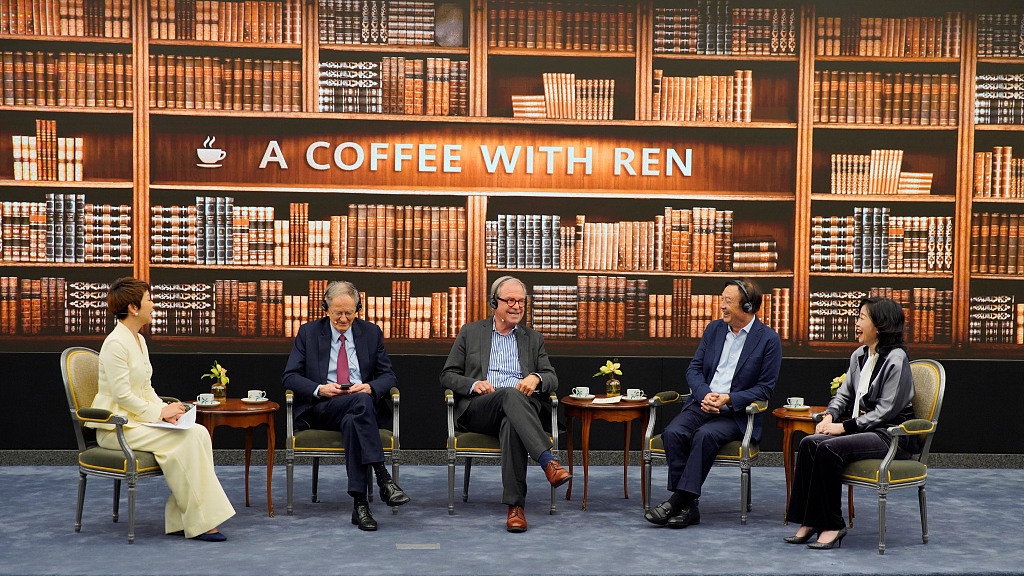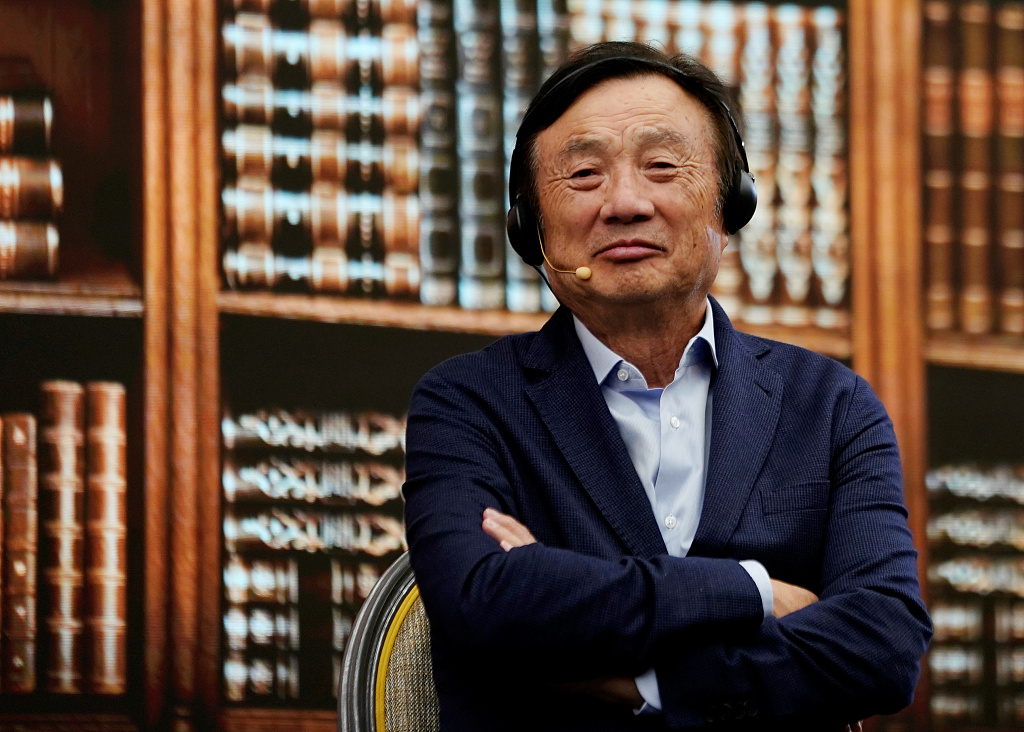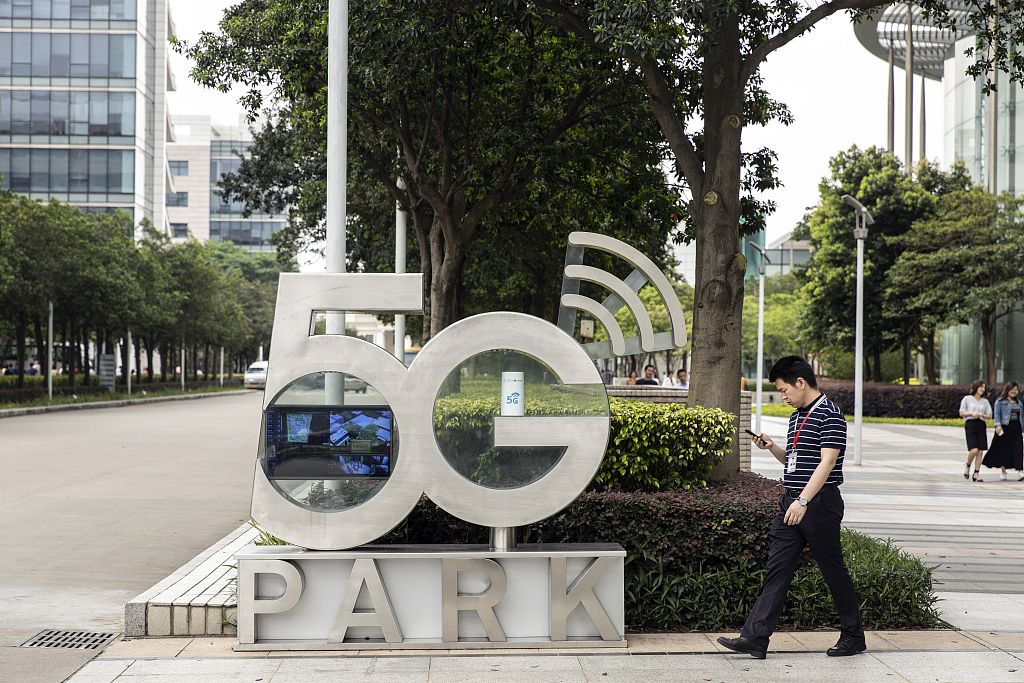

Editor's note: Kong Qingjiang is the dean of the School of International Law under China University of Political Science and Law. The article reflects the author's opinion, and not necessarily the views of CGTN.
Amid the gloomy atmosphere associated with the targeted sanction that the U.S. government imposed upon Huawei Technologies, Ren Zhengfei, CEO of the Chinese tech giant, sent an exciting message during a free dialogue with George Gilder, American tech guru and futurist, and Nicholas Negroponte, a tech visionary and co-founder of the MIT Media Lab, at the company's Shenzhen headquarters.
When asked whether Huawei will continue to do business with U.S. companies which stopped supplying, inter alia, technology and software to the Chinese tech giant, Ren showed his willingness to further technology cooperation.
Indeed, voluntary technology transfer based on commercial rules is mutually beneficial for both transferors and transferees.
Against the backdrop of economic globalization, competing companies of various countries in the same fields may often form a global industry chain with a distribution of labor in innovation naturally emerging among them. Advisably, such cooperation shall be free from government interference.
Unfortunately, the Huawei sanctioned by the U.S., which is intended to separate Huawei and its collaborators, international associations and even colleges, unjustifiably breaks up the industry chain, thus inflicting damage to the development of the global industry chain and global technology in the communications fields.

Huawei founder Ren Zhengfei attends a panel discussion at the company headquarters in Shenzhen, Guangdong Province, China, June 17, 2019. /VCG Photo
It is not difficult to find that U.S. misconception of technology transfer between the U.S. and China, which is behind the sanction, is based on the zero-game assumption, and linked with the "America First" obsession.
Therefore, Huawei has decided to develop the core technology on its own. Fortunately, it's CEO Ren Zhengfei, who is a peer to his dialogue partners famous for their vision and insights about the role of technology in our life, has a clear mind that Huawei cannot be separated forever from its U.S. collaborators just like many of its U.S. counterparts cannot live without it.
A recent report says Huawei was demanding one billion U.S. dollars in licensing fees from Verizon Communications, an American telecom operator. The Chinese tech giant is also claiming royalties against other U.S. network operators. The report, among others, turned out to present to the world the interdependence of companies like Huawei and other global players in the communications industry.
As a matter of fact, technology exchanges between countries are mutually beneficial. While U.S. companies used to be on the technology supplier side of the technology exchanges and cooperation, such exchanges have naturally turned out to be bidirectional as China is emerging as a source of robust technology innovation.
Many Chinese companies spend tons of money on R&D and have risen to be a leading force in global technology innovation. Take Huawei and the 5G of its pride. According to "Who is leading the 5G patent race?" a study by IPlytics, a German company, as of April 2019, the number of standard and essential patents for 5G communication systems applied by Chinese companies ranked first in the world, accounting for 34 percent.

Signage for the 5G Park at the Huawei Technologies Co. headquarters in Shenzhen, China, May 22, 2019. /VCG Photo
Around the globe, among the top 10 holders of such patents in the 5G area, Huawei ranked first. The core 5G patents of all U.S. companies account for less than 15 percent, while Huawei alone exceeds 20 percent. That is to say, Huawei has indisputably become a leader in 5G global competition.
The technological advancement is due to the huge investment by Huawei. In 10 consecutive years, Huawei has invested nearly two billion U.S. dollars in R&D on 5G technology. Only this long-term and concentrated R&D investment can guarantee that Huawei remains the leading position in such a high-tech industry.
Indeed, the rise of China's status in the global landscape of technological development is lending support to the technology exchanges between China and the rest of the world. In this context, one needs to adopt a normal attitude towards cross-country technology transfers and cooperation.
It is certainly unwise for us to be blind to the interdependence of the companies involved in the global technology-based industry chains. It might also be useful for us to be reminded that technology decoupling will do nothing but harm all the companies as well as the countries involved.
(If you want to contribute and have specific expertise, please contact us at opinions@cgtn.com.)

Copyright © 2018 CGTN. Beijing ICP prepared NO.16065310-3
Copyright © 2018 CGTN. Beijing ICP prepared NO.16065310-3